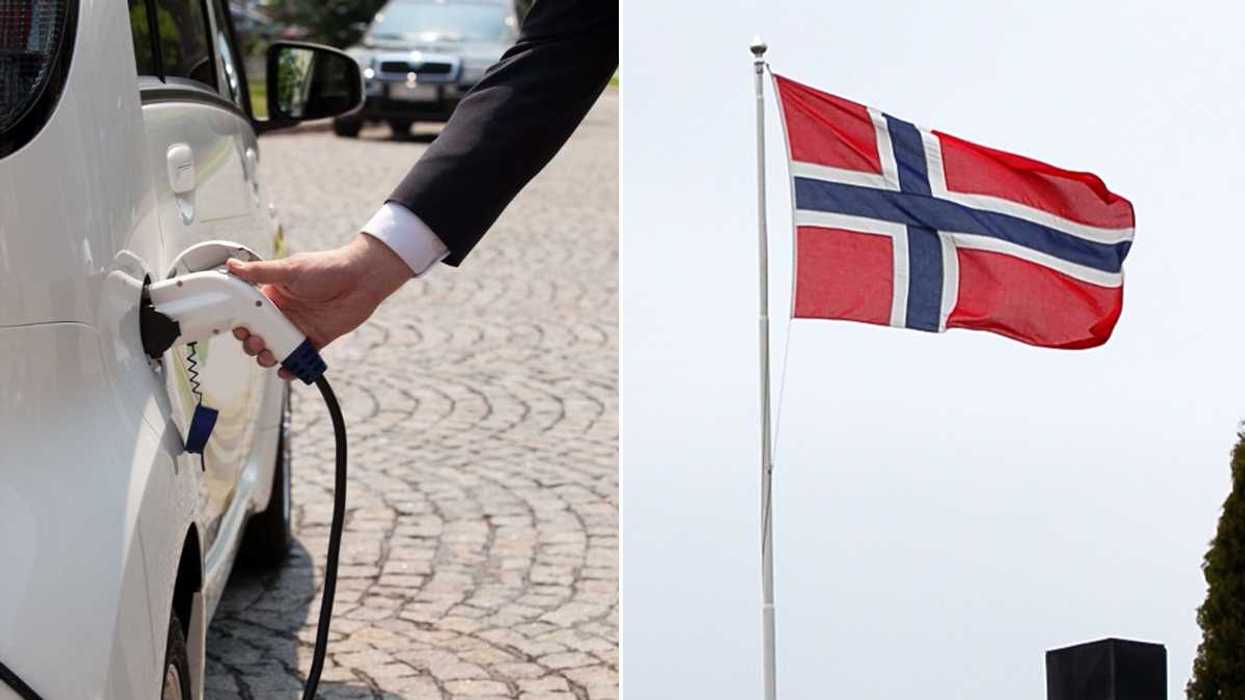This fall, the United Nations is preparing to launch its 17 Sustainable Development Goals—an extraordinary action plan to solve the world’s biggest problems by 2030. Over the coming months, we’ll be connecting with The Local Globalists: 17 nonprofit founders, entrepreneurs, and social innovators who are working every day, wherever they are, to turn one of the U.N.’s #globalgoals into reality.
Goal 5: Achieve gender equality and empower all women and girls.
“Every person should be able to give birth with love in the room,” says Marisa Pizii, 38, co-director of programs at Massachusetts-based The Prison Birth Project (PBP), and mother of three. “Birth is one of the most transformative experiences of any person’s life. We want to give women a chance to own that experience in a fully loving way,” she says. By this she means not in shackles, not with an indifferent correctional officer in the room, and not chained to a bed.
According to PBP, 85 percent of women in women’s prisons are mothers, 25 percent were pregnant on arrest or gave birth in the previous year, and 4-7 percent of incarcerated women are pregnant—54 percent of whom receive pregnancy care. As stated on their website, PBP “works within a reproductive justice framework to provide support, advocacy, and leadership training with women and trans people at the intersection of the criminal justice system and parenthood.” People in their programs can receive prenatal and full spectrum pregnancy care, childbirth education, and breastfeeding support, personal advocacy, and participation in groups and curriculum that, “begins to undo oppression and teaches organizing methods,” PBP states.
PBP also fights for legislative and policy change. For example, last year the organization worked on campaigns to pass the historic 2014 Act to Prevent Shackling and Promote Safe Pregnancies for Female Inmates in Massachusetts, guaranteeing minimum standards for pregnant women in prison and jail. Pizii says that PBP’s work is informed by the people it serves. “We don’t just come in and say, we want to work on anti-shackling. We work on anti-shackling because we have members who say, we don’t want to give birth in shackles,” she says.
Additionally, PBP trains and educates incarcerated and newly released women to be community leaders in peer support groups for women on the inside and on the outside, and they organized Mama’s Day Across Bars, to honor mothers who are incarcerated, because, as they have found, so many mothers behind bars feel isolated and forgotten.
PBP began in 2008, when a women’s jail opened in Chicopee with no services for pregnant women or support for parents. Two new mothers living nearby joined with reproductive justice activists to remedy this, and the organization now runs on three full-time and two part-time staff members, and the help and services of volunteers (including volunteer doulas). It is funded through donations and grants. “We’re pretty lucky that we got into Chicopee so easily,” Pizii says. “It’s hard to get services into a prison or a jail, and it’s an interesting line we have to manage working within a system we don’t agree with.”
Since May 2014, when Massachusetts passed the Anti-Shackling Act, PBP, along with Prisoners’ Legal Services has been monitoring its implementation, and found that it has been continually violated. In their Massachusetts Anti-Shackling Coalition Statement, published in May 2015, they reaffirmed their support of the law and expressed their disappointment in its disregard. The statement claims, “We know that even after the passage of the law, women have been shackled to the hospital bed after giving birth, restrained on the way back to prison or jail after having their baby, and even shackled with waist chains and leg irons inside of prison. In many cases, women are still being driven to court or doctor’s appointments in vans without seatbelts, compromising their safety—or missing important court dates because those in charge do not have appropriate vehicles ready.”
They gathered testimonials of women who were pregnant during their incarceration since the law went into effect, and published their anonymous findings. One woman, who was handcuffed while in labor, said, “I couldn’t move like I needed to—couldn’t hold my stomach or push up to move myself around. The metal would dig into me every time I did try to grab my stomach during a contraction. It was incredibly lonely going through that experience by myself, and being cuffed during that labor felt dehumanizing. It was like it was an extra punishment that was cruel and unnecessary.” PBP, along with National Lawyers Guild – Massachusetts Chapter, Unitarian Universalist Urban Ministry, Criminal Justice Policy Coalition, along with many other organizations, are calling for the implementation of this law passed one year ago.
Some may feel that those in prison deserve to be punished, but Pizii sees it differently. “Stop this conversation about, ‘People deserve this punishment they get in jail,’” Pizii says. “When you put your kid in time out, that’s their punishment. When they come out of time-out, we don’t walk around the rest of their day and the rest of their lives continuing to punish them.”
Pizii began working with the Mothers of Color Awareness Initiative (MOCAI), the now defunct organization of parents raising kids of color in the Pioneer Valley. When MOCAI began to disband, she says it was an easy transition over to PBP, where she was organizing around racialized experiences in prison. She facilitated groups about oppression for women struggling with substance use, and then transitioned to leading similar groups for incarcerated women. She tells women, “You are more than the choices that got you here. Your choices don’t mean anything when all your choices are steeped in oppression.”
The next policy initiative PBP will undertake is to join with Families for Justice as Healing to support An Act to Create Community-Based Sentencing Alternatives for Non-Violent Primary Caretakers of Dependent Children. The goal of the act is to alleviate “harm to children and their parents or caretakers caused by separation due to incarceration, while reducing recidivism and strengthening family unity and communities.”
Next, Pizii wants to create a system for women who get out of jail to have access to resources to “feel held and comfortable and safe and reorganize their lives.” Perhaps equally importantly, she wants to see change in how those on the outside think about incarcerated people.
Says Pizii, “This is about more than birth and mothering, this is about humanity. Remember that the person you’re talking about on the other side of the wall is someone’s sister, daughter, mother. Extend them humanity.”
















 Otis knew before they did.
Otis knew before they did.